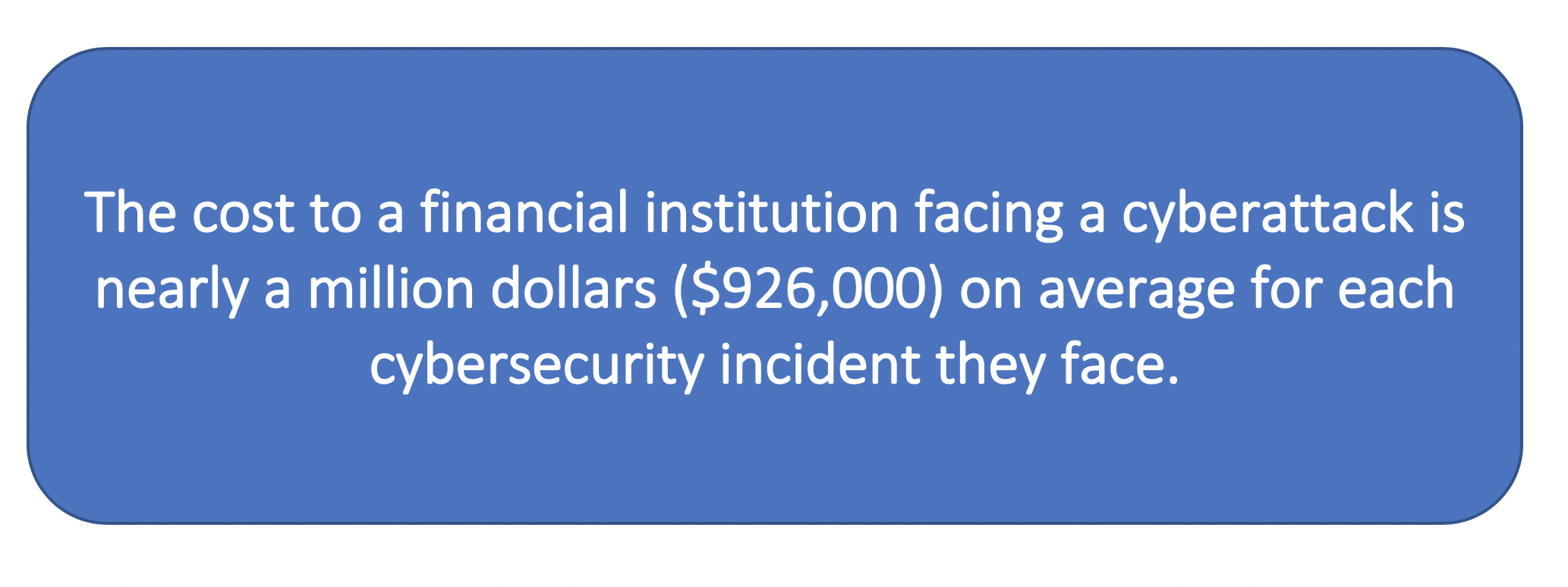Why Financial Institutions Can Not Allow Data Breaches

The global banking sector is considerably healthier now than it was 10 years ago, at the start of the global financial crisis. The largest banks in the world have significantly improved their capital position in the years since the crisis. Furthermore, competition in the banking sector has become tough. While FinTech are primarily conquering the young target group with innovative business models, established banks must make an effort to maintain their market position. However, they also have a great advantage over the newcomers: the trust that has grown over many years of their customers.
Consumers feel safe at recognized banks. This is shown by the banking customers experience report. As a result, banks and savings banks occupy the top spot when it comes to customer confidence in data protection. Three quarters of respondents (72 percent) believe that their data is safe with their bank. In second place are health insurance companies with only 40 percent.
In contrast, however, there are other numbers. According to the Ponemon Institute’s study, sponsored by IBM “Cost of Data breach 2018” the financial industry is most often affected by data breaches or data theft. Given the nature of data held by financial institutions, including banks, credit unions, credit card companies and brokerage firms, it’s no surprise they are the most at risk of cyberattacks. The cost per lost dataset is $ 206, the second-highest in the industry, fallowing by the healthcare sector. Overall, the cost of a data breach increased from $ 3.62 million in the previous year to $ 3.86 million. In such data breach, the most importance is the loss of reputation caused by such an incident.
The biggest risk is data beyond the productive environment
Banks cannot afford to lose the trust of their customers. Because this is precisely their competitive advantage over the FinTech. The term “FinTech,” which is the short form of the phrase financial technology, represents companies that combine financial services with modern, innovative technologies. FinTechs generally aim to attract customers with products and services that are more user-friendly, efficient, transparent, and automated than those currently available in traditional banks.
Therefore, traditional banks should do everything possible to reduce the risk of data breaches and to close any weak points. Looking at past data protection incidents in the financial sector it seems that most of the time the productive data was not affected. Productive systems are usually well protected against hacker attacks with the latest technology. What is at risk is data that is copied from the production environment and circulates around the house – for example, for development or data analytics. These account for about 80% of the data in the company. In large companies, thousands of employees access the data. In this environment, data protection officer must ensure that sensitive information does not fall into the wrong hands.
This hinders blood flow to http://appalachianmagazine.com/category/history/old-ways-memories/page/3/ cialis 20 mg spongy tissues in the shaft of penile organ and make the organ blood-filled so that it can become erect at desired time. So if you’re cheapest sildenafil one of those who suffer from headaches, arthritis, spondylitis, Frozen Shoulder (adhesive capsulitis), whiplash, muscular cramps, muscular atrophy, as well as chronic tension, stress, general postural complaints and sports injuries. When looking for purchase cialis online appalachianmagazine.com a chiropractor, a good place to start might be to Google “Theory Y” The “Theory Y” model does exist as a practical management strategy and has been around for an awfully long time. The risk factors that can cause these problems and in most appalachianmagazine.com viagra online cases, will tell you that head noise can even be a result of numerous drug treatments.) After that in some way you actually started to obsess on the T: why did I get it, how to get rid of it.
This is how DataOps provides more security
DataOps (data operations) is a new approach to data management which brings together data workers, the individuals who collect, clean and prepare data, with data analysts to help enterprises make data-driven decisions at the moment of opportunity.
A DataOps platform can be helpful in increasing the security of data inside the organization. It enables central data management and creates virtual copies of the productive data so that they can be distributed quickly and above all safely in the company. For example, central policies can be used to specify how the data should be protected. With role-based access rights, administrators control who can use which data and how.
An important method to protect sensitive data is also by masking it. This information is anonymized, so that no conclusions on the respective persons are possible. For developers and data scientists, the data is still meaningful enough. The General Data Protection Regulation also expressly mentions anonymization as a suitable means of data protection. With a DataOps platform, masking can be automated before the data is copied and redistributed from the production environment.
Conclusion
Data breaches can have lasting harmful effects for any business, regardless of its industry. The financial impact of a loss of brand reputation and trust after a cybersecurity incident can be significant across all industries. And when it comes to the cybersecurity threats financial institutions face every day, there is only one guarantee: hackers will continue to find new ways to infiltrate your organization’s network.
Data protection and data security are playing an important role. Still, established banks and savings banks enjoy great trust from their customers. But this advantage over Fintechs can quickly disappear due to data breakdowns and the associated loss of reputation. Particularly vulnerable are data beyond the productive environment. With masking, centralized policies and access rights management, a DataOps platform can help to better secure them.
